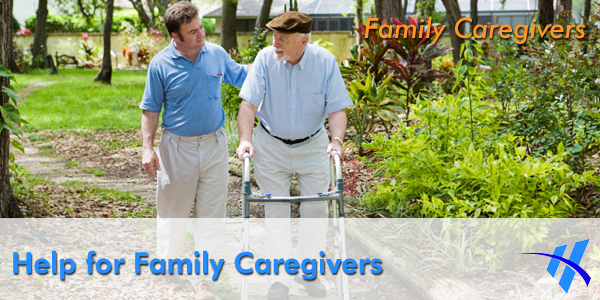Tips and Solutions for Caregivers: Accessibility at Home

When was the last time you did something for a loved one they could never repay you for?
For millions of Americans, every day is spent caring for someone else. According to the Centers for Disease Control, over 34 million Americans act as unpaid caregivers for someone age 18 and older. Another statistic from the Pew Research Center states four in 10 U.S. adults care for a loved one with a significant health issue.
While these “family caregivers” provide compassionate care and know their loved one more intimately than a nurse, they often don’t have the knowledge necessary for providing care. This includes technical and medical knowledge, but it also includes being able to identify how accessible a home is.
The following are parts of the home family caregivers must be conscious of to provide the best care possible to their loved ones.
Home Entrances and Exits
These areas are crucial for caregivers working with a loved one in a wheelchair or other mobility device. Most doorways designed for wheelchair access require between 32 to 36 inches in width.
Caregivers also need to account for any steps into and out of the home. Entry ramps can help when entering or exiting a home. For those individuals who are more mobile, railings for enhanced security and safety may be considered.
Access Throughout the Entire Home
In addition to providing easier entry and exit access, pathways inside the home must have the same capabilities. This is especially true of the room the individual will reside in, as well as the bathroom they will be using. Pathways and entryways should be clear of clutter and any items that can obstruct traffic.
It is also important to promote independence to the highest degree possible. There are numerous aids to daily living available to help a loved one accomplish tasks with a degree of independence.
Access to Bathroom Facilities
If the individual needing care is able to use the restroom independently, it will be important for them to have easy and safe access to bathroom facilities.
For some individuals, a commode in their bedroom will be the simplest solution for using the bathroom. Bathing can also be accomplished in bed or nearby with the help of a hair washing basin or body washing basin.
For caregivers whose loved one has a higher level of mobility and independence, bathroom safety equipment such as grab bars, raised toilet seats and shower chairs are beneficial to ensure safety.
Family caregivers provide vital care with the highest level of compassion in an effort to make their loved one’s life better. Homepro Medical Supplies is proud to offer the equipment and supplies noted above, as well as numerous other items to help assist family caregivers.
Simply browse our website by area of the home (bathroom, bedroom or living room) or use our convenient site search option to quickly find the necessary equipment.



 (800) 437-3677
(800) 437-3677